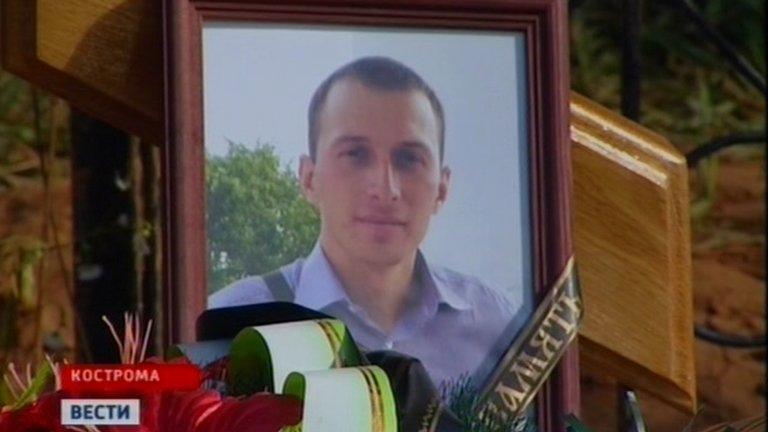Ukraine crisis: Forgotten death of Russian soldier
- Published
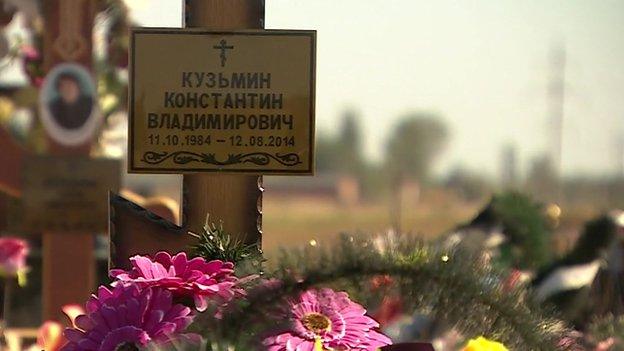
Konstantin Kuzmin died aged 29 after joining Russian soldiers on the border with Ukraine
A thousand miles from Moscow, on a wooden bench in the yard of her parents' house, Oksana shares memories of her brother Konstantin.
She shows me the medal he'd been awarded for military service in the North Caucasus; some of his army photos, too, including a portrait on a military pendant.
"This is the image we're going to use on his gravestone," Oksana explains.
Three weeks before Konstantin Kuzmin was killed, he was sitting in this yard enjoying a summer holiday.
"He got a telephone call. He said it was from the commander of his army unit, who told him there was going to be an inspection and that everyone had to be back on base," Oksana recalls.
"He left on 23 July. Three days later my brother called to say he was on the move again. It sounded as if he was frightened of something. 'I'm off to the south west! South-west Ukraine!' he said. I thought, perhaps, he meant the border area ... " she added.
"On 8 August we spoke again on the phone. But he was in a rush. He said to our parents 'Mama, Papa, I love you. Hi to everyone! Kiss my daughter for me…' Then, when he went to the border, or wherever it was he went, he told us not to call him. He would call us."
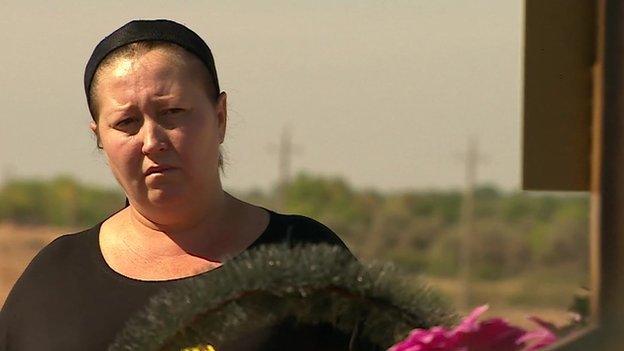
Oksana says she last saw her brother Konstantin in late July
Konstantin was a "kontraktnik", a professional soldier.
In denial
Where and how he was killed remains a mystery.
Oksana continued: "On 17 August the military commissar came to my parents and told them my brother had been killed."
"He said a shell fired from Ukrainian territory had landed on Konstantin's vehicle. That's all we knew, until the coffin arrived. The official said my brother had been killed in military exercises on the border with Ukraine," she said.
"Do you believe the words you are telling me?" Oksana asked the official.
"No," he replied.
"So why are you saying this?" Oksana inquired.
"They tell us that there is no war, that our soldiers are not involved," says Oksana now. "So who is responsible for his death? It is the only question which tortures me."
Russia's official position remains unchanged: there are no - and there never were any - Russian troops in eastern Ukraine.
Conclusion: there was no Russian invasion, no Russian incursion, no Kremlin-sponsored war.
It is a position that paints Russia as innocent bystander in the conflict.
Moscow does now concede that some Russian soldiers have taken up arms across the border, maintaining these individuals have taken time off from the army and are fighting in their holidays.
Yet in recent weeks, there have been persistent reports of Russian servicemen being sent to fight in Ukraine; reports, too, of soldiers' funerals across Russia.
Knocked and beaten
Steve Rosenberg reports: ''Someone clearly did not want our material broadcast''
It is a hugely sensitive subject.
That may explain what happened to our news team after the interview with Oksana.
As we were leaving her village we were stopped by traffic police.
Our car boot was checked, as were our identities.
We drove on to Astrakhan, 40 miles away, for lunch.
When we left the cafe and approached our vehicle, we were confronted and attacked by at least three aggressive individuals.
Our cameraman was knocked to the ground and beaten.
The attackers grabbed the BBC camera, smashed it on the road and took it away in their getaway car.
We spent more than four hours at the police station being questioned by investigators.
Buried and forgotten
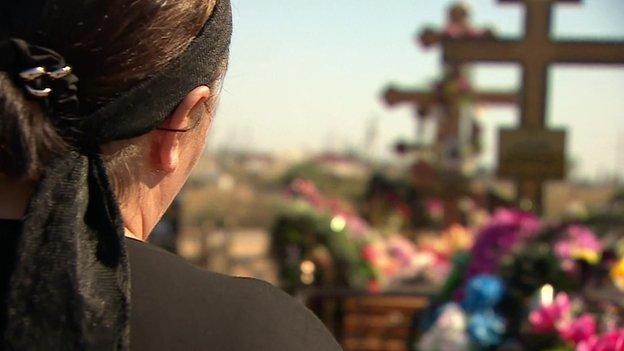
Konstantin's family were told of his death when Russian military officials visited them on 17 August
On the way to the airport we discovered that, while we had been at the police station, some of the recording equipment in the car had been tampered with.
The hard drive of our main computer and several memory cards had been wiped clean.
Fortunately we had uploaded the interview to London earlier in the day.
But why would anyone set out to destroy our material and to silence the sister of a Russian soldier?
Oksana is no terrorist, no political opponent of the Russian government.
All she wants to know is the truth about Konstantin's death - where exactly he died and how - and ensure that the army does not turn its back on her dead brother.
"He loved Russia, he was so patriotic," Oksana tells me.
"I just don't understand how they can forget a soldier like him. He was killed, he was buried and he was forgotten."
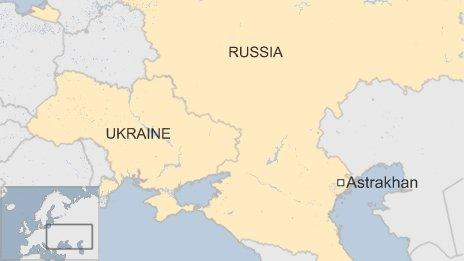
- Published18 September 2014
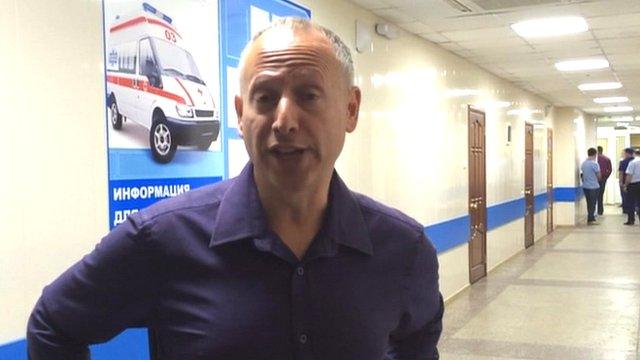
- Published27 August 2014
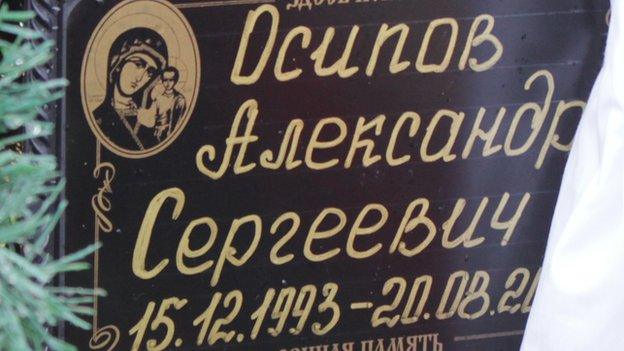
- Published5 September 2014
